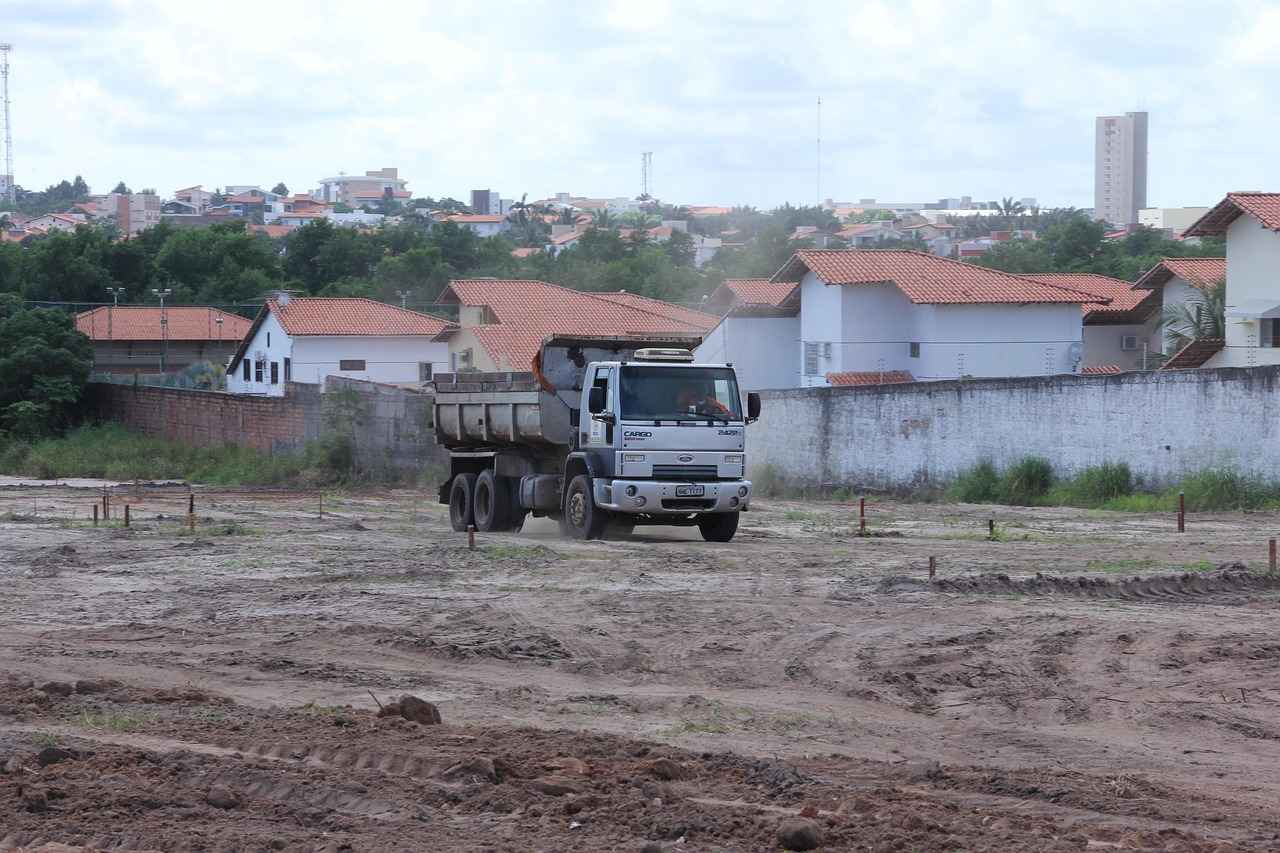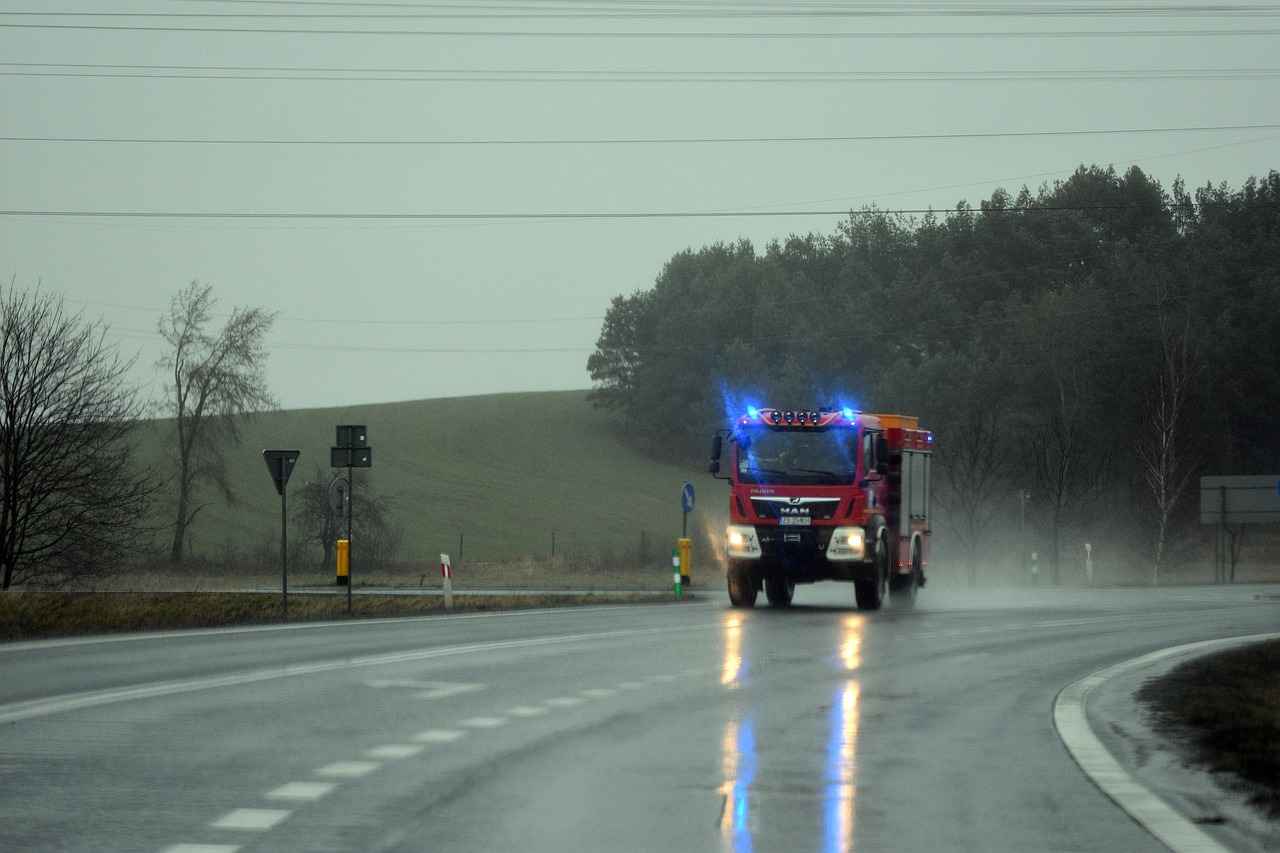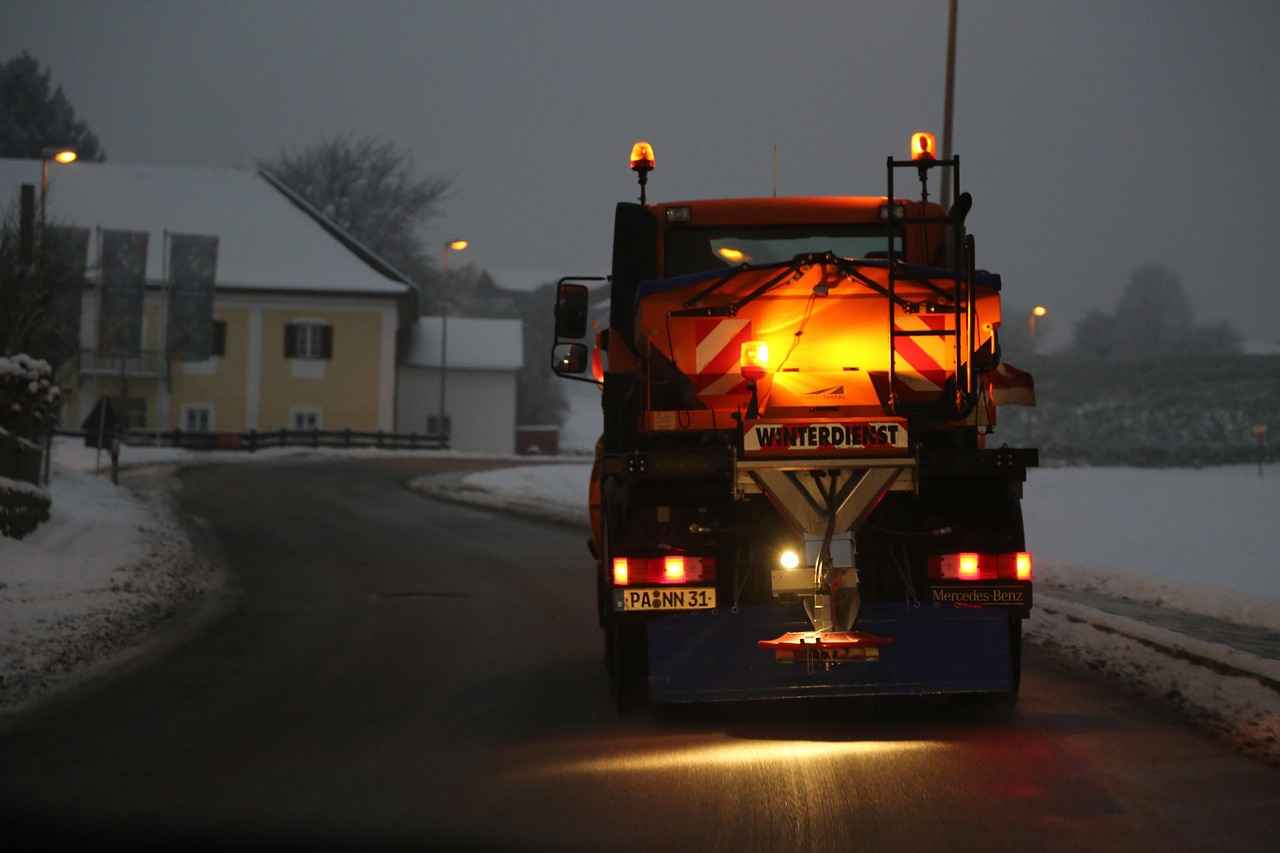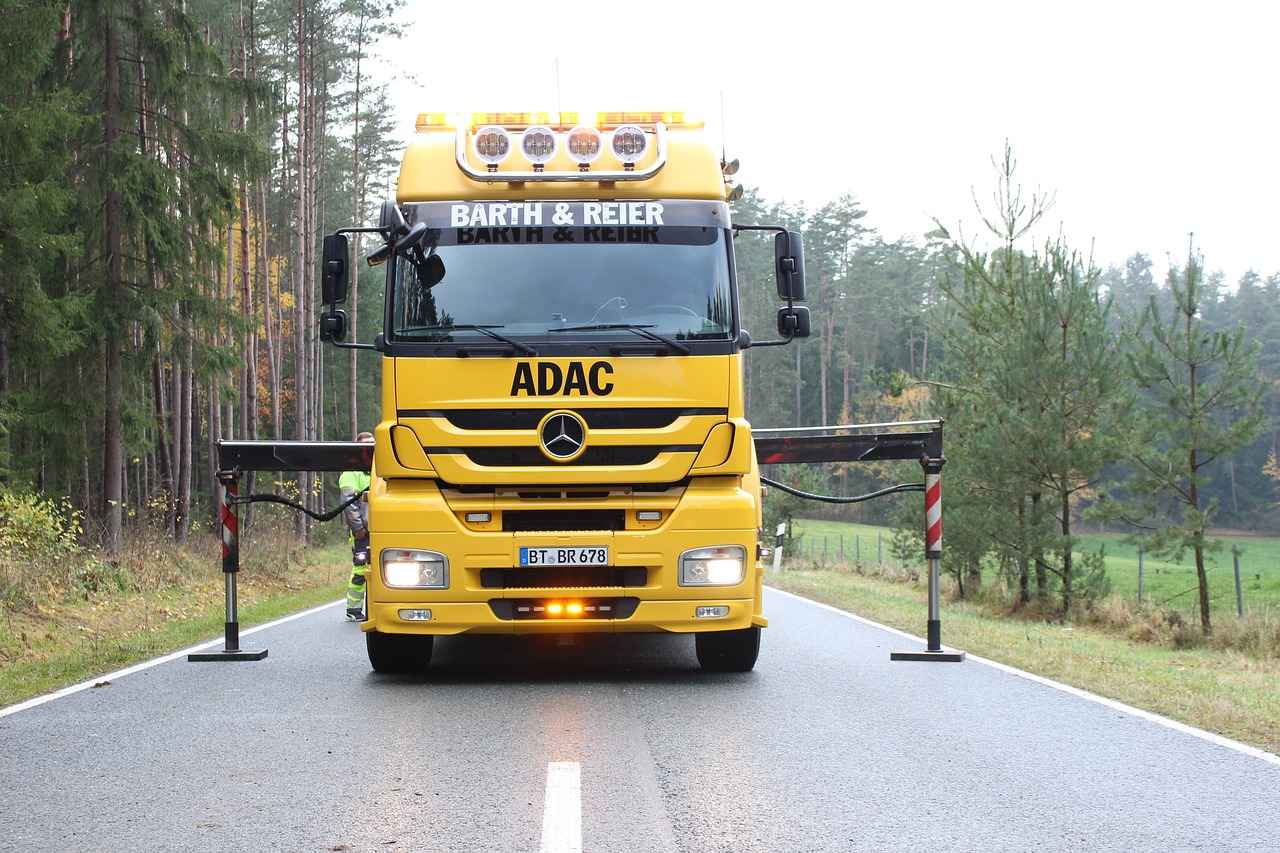This article explores the essential factors to consider when searching for a reliable wrecker service. We’ll provide insights into what makes a service trustworthy and how to find the best options nearby.
Understanding Wrecker Services
Wrecker services are integral to roadside assistance, offering help when vehicles break down or are involved in accidents. These services encompass a wide range of operations, from towing vehicles to providing emergency fuel delivery and jump-starting batteries. Understanding the various aspects of wrecker services can help you make informed decisions when you find yourself in a difficult situation.
Typically, wrecker services are equipped to handle different types of vehicles, including cars, trucks, and motorcycles. They often operate 24/7, ensuring that help is available whenever you need it. This flexibility is crucial, as emergencies can happen at any time, and knowing that assistance is just a call away can provide peace of mind.
Types of Wrecker Services
There are several types of wrecker services available, each tailored to meet specific needs. Understanding these types can help you choose the right service for your situation.
- Light-Duty Towing: Ideal for small vehicles like cars and motorcycles, light-duty towing is perfect for minor accidents and breakdowns.
- Medium-Duty Towing: This service caters to larger vehicles, such as vans and small trucks, often used for commercial purposes.
- Heavy-Duty Towing: Designed for big rigs and heavy vehicles, this service requires specialized equipment and skilled operators.
How to Choose a Wrecker Service
Choosing the right wrecker service can be overwhelming, especially during an emergency. Here are some essential factors to consider:
- Reputation: Research online reviews and ratings to gauge the reliability of a service. A good reputation often indicates quality service.
- Licensing and Insurance: Ensure the wrecker service is licensed and insured. This protects you from potential liabilities.
- 24/7 Availability: Look for services that operate around the clock. Emergencies can occur at any time, and you want to be sure help is available.
- Response Time: Ask about their average response times to ensure you won’t be left waiting for help.
Cost of Wrecker Services
The cost of wrecker services can vary widely based on several factors, including the type of vehicle, the distance towed, and the time of day. Understanding these factors can help you budget appropriately.
- Distance: Most companies charge based on the mileage towed. Longer distances will naturally incur higher costs.
- Vehicle Type: Larger or heavier vehicles may require specialized equipment, which can increase the cost.
- Time of Day: Services rendered during off-hours or holidays may come with additional fees.
To ensure you’re getting a fair price, obtain quotes from multiple wrecker services. This will allow you to compare prices and services offered.
Local Regulations and Compliance
Understanding local regulations regarding wrecker services is essential. Each state has different licensing requirements and consumer protection laws that can impact your experience. Familiarize yourself with these regulations to ensure you are hiring a compliant and trustworthy service.
- Licensing Requirements: Check that the wrecker service has the necessary licenses to operate in your area. This is crucial for your protection.
- Consumer Protection Laws: Be aware of your rights as a consumer. Familiarizing yourself with local laws can help safeguard you during the towing process.
In conclusion, a well-informed choice can lead to a positive experience with wrecker services. By understanding the types of services available, knowing what to look for in a provider, and being aware of costs and regulations, you can make the best decision for your needs.

Understanding Wrecker Services
Wrecker services are an essential component of roadside assistance, providing critical support to drivers in distress. When a vehicle breaks down, gets into an accident, or becomes immobilized for any reason, wrecker services come to the rescue. These services not only facilitate the safe transportation of vehicles but also ensure that drivers and passengers are kept safe during emergencies.
What Are Wrecker Services? Wrecker services, also known as towing services, encompass a range of operations designed to assist vehicles in need. This can include towing, recovery, and roadside assistance. Wrecker operators are trained professionals equipped with specialized vehicles and equipment to handle various situations, from minor breakdowns to major accidents.
The Importance of Wrecker Services The significance of wrecker services extends beyond mere towing. They play a vital role in maintaining road safety and efficiency. For instance, when a vehicle is left stranded on the road, it can pose a hazard to other drivers, leading to potential accidents. By swiftly removing such vehicles, wrecker services help to keep traffic flowing smoothly. Additionally, they provide peace of mind to drivers, knowing that assistance is just a phone call away.
Types of Wrecker Services Wrecker services can be categorized into several types, each tailored to meet specific needs:
- Light-Duty Towing: Ideal for small vehicles such as cars and motorcycles, light-duty towing is the most common type of service. It is suitable for everyday situations like flat tires, minor accidents, or simple breakdowns.
- Medium-Duty Towing: This service is designed for larger vehicles, including vans and small trucks. Medium-duty towing is often required for commercial vehicles that need assistance without the complexities of heavy-duty towing.
- Heavy-Duty Towing: Heavy-duty towing is necessary for large vehicles such as buses, tractor-trailers, and construction equipment. These services require specialized equipment and trained personnel to safely transport heavy loads.
- Roadside Assistance: Many wrecker services also offer roadside assistance, which can include jump-starting a vehicle, providing fuel, or unlocking a car.
How Wrecker Services Operate When you contact a wrecker service, the process typically begins with an assessment of your situation. The dispatcher will ask for details about your location, the type of vehicle, and the nature of the issue. Based on this information, they will send the appropriate type of tow truck and crew to assist you.
Most wrecker services operate 24/7, ensuring that help is available at any hour of the day. This round-the-clock availability is crucial, as emergencies can occur at any time. Upon arrival, the wrecker operator will evaluate the situation and determine the best course of action, whether it involves towing the vehicle to a repair shop or providing immediate roadside assistance.
Conclusion In summary, wrecker services are a vital part of the transportation ecosystem, providing essential support to drivers in need. Understanding the various types of wrecker services available can help you make informed decisions when faced with a roadside emergency. Whether you require light-duty towing for a personal vehicle or heavy-duty assistance for a commercial truck, knowing what to expect from wrecker services can alleviate stress during challenging situations.

Types of Wrecker Services
When it comes to wrecker services, understanding the different types available can significantly impact your decision-making process. Each type of wrecker service is designed to cater to specific situations, ensuring that you receive the appropriate assistance based on your vehicle and circumstances. In this article, we will delve into the various categories of wrecker services, including light-duty, medium-duty, and heavy-duty towing services, to help you navigate your options effectively.
Wrecker services are not one-size-fits-all; they are tailored to meet the diverse needs of vehicle owners. Whether you are dealing with a minor breakdown or a major accident, knowing which type of towing service to call can save you time, money, and stress. Below, we will explore the three main categories of wrecker services in detail.
Light-duty towing services are specifically designed for smaller vehicles, including passenger cars, motorcycles, and light trucks. These services are ideal for everyday situations where a vehicle requires assistance but does not pose a significant challenge to tow.
- Typical Uses: Common scenarios for light-duty towing include breakdowns, flat tires, and minor accidents. If your car has run out of gas or experienced a mechanical failure, a light-duty wrecker is your best option.
- Equipment: Light-duty tow trucks are equipped with specialized tools, such as wheel lifts and flatbeds, making it easy to load and transport smaller vehicles safely.
- Response Time: One of the primary advantages of light-duty towing is the quick response time. Many companies offer 24/7 services, ensuring that help is just a phone call away.
Medium-duty towing services cater to larger vehicles that require more robust towing solutions. This category includes vans, small buses, and larger trucks that exceed the capacity of light-duty tow trucks.
- Typical Uses: Medium-duty towing is often necessary for commercial vehicles, delivery trucks, and recreational vehicles (RVs) that may encounter issues on the road.
- Capabilities: Medium-duty tow trucks are equipped with more powerful winches and towing equipment to handle the weight and size of larger vehicles safely.
- Situations: If your vehicle is involved in a more serious accident or requires a long-distance tow, medium-duty services are often the best choice.
Heavy-duty towing services are designed for the most challenging towing jobs, typically involving large trucks, buses, and construction vehicles. These services are essential for commercial businesses and industries that rely on heavy machinery.
- Typical Uses: Heavy-duty towing is often needed in accidents involving large vehicles or when heavy machinery breaks down on job sites.
- Specialized Equipment: Heavy-duty tow trucks are equipped with advanced technology, including heavy-duty winches and specialized towing mechanisms, to handle the weight and size of these vehicles.
- Expertise Required: Due to the complexities involved in heavy-duty towing, it is crucial to choose a service with experienced operators who are trained to manage such demanding tasks safely.
In summary, understanding the different types of wrecker services available can help you make an informed decision when you find yourself in need of assistance on the road. Whether you require light-duty, medium-duty, or heavy-duty towing, knowing which service is appropriate for your situation ensures that you receive the best possible care for your vehicle.
Light-Duty Towing
Light-duty towing is a specialized service designed primarily for smaller vehicles, including cars, motorcycles, and light trucks. This type of towing is essential for various situations, particularly when you find yourself in need of roadside assistance. Understanding the capabilities and limitations of light-duty towing can help you make informed decisions during emergencies.
Capabilities of Light-Duty Towing
Light-duty towing services are equipped to handle a range of vehicles weighing up to approximately 10,000 pounds. This includes standard passenger vehicles, compact cars, and motorcycles. The equipment used for light-duty towing typically consists of flatbed trucks, wheel-lift systems, and tow dollies. These tools are designed to ensure that your vehicle is transported safely and without damage.
Some of the common services included in light-duty towing are:
- Flat tire changes
- Jump-starting dead batteries
- Fuel delivery for empty tanks
- Lockout services for vehicles
- Accident recovery for minor collisions
Utilizing these services can save you time and potentially costly repairs that can arise from improper towing methods.
Limitations of Light-Duty Towing
While light-duty towing is highly effective for smaller vehicles, it does have its limitations. For instance, this service may not be suitable for larger vehicles such as vans, SUVs, and trucks that exceed the weight limit. In addition, light-duty towing may not be the best option for vehicles that have sustained severe damage or are involved in significant accidents, as these situations often require medium or heavy-duty towing services.
It’s also important to consider the terrain and location of your vehicle. If your car is stuck in a challenging spot, such as a ditch or off-road area, light-duty towing may not be able to provide the necessary support without additional equipment.
When to Use Light-Duty Towing Services
Identifying the right situations for light-duty towing can help you respond effectively in emergencies. Here are some scenarios when you should consider calling for light-duty towing:
- Breakdowns: If your vehicle has suddenly stopped running, light-duty towing can transport it to a repair shop.
- Flat Tires: If you experience a flat tire and do not have the means to change it yourself, a towing service can assist.
- Minor Accidents: In the case of minor fender benders, light-duty towing can help move your vehicle off the road safely.
- Battery Issues: If your car won’t start due to a dead battery, many light-duty towing companies offer jump-start services.
In these situations, having access to light-duty towing can provide peace of mind and ensure that you are back on the road as quickly as possible.
Conclusion
Light-duty towing is an invaluable service that caters specifically to smaller vehicles and everyday roadside emergencies. By understanding its capabilities and limitations, you can make informed decisions when faced with vehicle troubles. Always keep the contact information of a reliable light-duty towing service handy to ensure prompt assistance when you need it most.
Typical Uses for Light-Duty Towing
Light-duty towing is an essential service that caters to a variety of scenarios involving smaller vehicles. Understanding when to utilize this service can not only save you time but also help you avoid unnecessary expenses. Below, we explore the most common situations in which light-duty towing is typically required.
- Breakdowns: Vehicle breakdowns are perhaps the most frequent reason people call for light-duty towing. Whether it’s due to mechanical failure, battery issues, or fuel depletion, a reliable towing service can transport your vehicle to a nearby garage for repairs. Having the contact information for a local wrecker service can be invaluable during such stressful situations.
- Minor Accidents: In the event of a minor accident, such as a fender bender, light-duty towing is often necessary to remove the damaged vehicle from the roadway. This not only helps to prevent further accidents but also allows for a safer environment for other drivers. Towing services are equipped to handle vehicles that may be undriveable due to cosmetic or structural damage.
- Flat Tires: A flat tire can happen to anyone at the most inconvenient times. While some individuals may attempt to change a tire themselves, not everyone has the tools or the physical ability to do so safely. In these cases, calling a light-duty towing service can provide peace of mind, ensuring that your vehicle is transported to a nearby service center for tire replacement or repair.
- Stuck Vehicles: Sometimes, vehicles can become stuck in mud, snow, or sand. In these instances, light-duty towing services can assist by pulling the vehicle out without causing further damage. Towing professionals have the right equipment and expertise to recover your vehicle effectively.
- Parking Violations: If your vehicle has been parked inappropriately or in a no-parking zone, a light-duty towing service may be required to relocate it. This is often done by property owners or management companies to ensure compliance with local regulations.
Benefits of Calling Light-Duty Towing Services
Utilizing light-duty towing services comes with several advantages. Firstly, these services typically offer quick response times, which is crucial during emergencies. Many towing companies operate 24/7, ensuring that help is just a phone call away, regardless of the time of day.
Moreover, light-duty towing services are equipped with specialized tools and vehicles designed specifically for handling smaller cars, motorcycles, and other light vehicles. This means that your vehicle is less likely to incur damage during the towing process, as the equipment used is tailored for the task.
Additionally, many light-duty towing services provide roadside assistance, which may include services such as jump-starting a dead battery, delivering fuel, or unlocking a car door. This can be a significant advantage, as it may eliminate the need for towing altogether, saving you both time and money.
In summary, knowing when to call for light-duty towing can be incredibly beneficial. Whether it’s for a breakdown, a minor accident, or simply needing assistance with a flat tire, having a reliable towing service at your disposal can make all the difference in a stressful situation. Always keep the contact information of a trusted local wrecker service handy, so you can act quickly when the need arises.
Advantages of Light-Duty Towing
When it comes to roadside assistance, light-duty towing services have become increasingly popular. These services are specifically designed for smaller vehicles, such as cars and motorcycles, and they offer a range of advantages that make them a preferred choice for many drivers. In this section, we will explore the numerous benefits of light-duty towing and why they are often the most sought-after option in emergency situations.
- Quick Response Times: One of the most significant advantages of light-duty towing is the quick response times. In emergencies, every minute counts, and light-duty tow trucks are often more agile and can navigate through traffic more easily than larger vehicles. This means that help can arrive sooner, reducing the stress and inconvenience for the driver.
- Specialized Equipment: Light-duty towing services utilize specialized equipment tailored for smaller vehicles. This includes flatbed tow trucks and wheel-lift systems that ensure safe and secure transport without causing damage to the vehicle. The use of high-quality equipment minimizes the risk of further complications, such as scratches or mechanical issues during towing.
- Cost-Effectiveness: Generally, light-duty towing services are more affordable compared to medium and heavy-duty options. This cost-effectiveness is particularly appealing for drivers who may be on a tight budget. The pricing structures are often straightforward, allowing customers to understand the costs upfront without hidden fees.
- Versatility: Light-duty towing services are versatile and can handle a variety of situations. Whether it’s a flat tire, a dead battery, or a minor accident, these services can address multiple issues efficiently. This adaptability makes light-duty towing a reliable choice for a wide range of roadside emergencies.
- Expertise in Handling Small Vehicles: The operators of light-duty tow trucks are typically trained to handle small vehicles with care and precision. Their expertise ensures that your vehicle is treated properly during the towing process. This level of care is crucial, as improper towing can lead to damage and additional costs.
- Availability: Many light-duty towing services offer 24/7 availability, providing peace of mind for drivers who may find themselves in need at any hour. Knowing that help is just a phone call away, regardless of the time, can significantly reduce anxiety during stressful situations.
In conclusion, light-duty towing services offer a host of advantages that make them an ideal choice for drivers facing roadside emergencies. From their quick response times and specialized equipment to their cost-effectiveness and versatility, these services are designed to meet the needs of smaller vehicles efficiently. By understanding the benefits of light-duty towing, drivers can make informed decisions and ensure they receive the best assistance when they need it most.
Medium and Heavy-Duty Towing
Medium and heavy-duty towing services are essential for managing larger vehicles that require specialized equipment and expertise. These services are not just about moving a vehicle from one location to another; they address unique challenges associated with bigger vehicles, such as trucks, buses, and heavy machinery.
Understanding the Need for Medium and Heavy-Duty Towing
The primary need for medium and heavy-duty towing arises from the sheer size and weight of the vehicles involved. Standard towing services often lack the necessary equipment to handle these larger vehicles safely and efficiently. For instance, a typical passenger vehicle might weigh around 3,000 pounds, while a heavy-duty truck can weigh upwards of 80,000 pounds when fully loaded. This significant weight difference means that specialized towing equipment, such as heavy-duty wreckers and flatbed trucks, is essential for safe transport.
When Are Medium and Heavy-Duty Towing Services Necessary?
There are several scenarios where medium and heavy-duty towing services become indispensable:
- Accidents: In the event of an accident involving larger vehicles, specialized towing is required to safely recover the vehicle without causing further damage.
- Breakdowns: Larger vehicles often experience mechanical failures that require expert attention and specialized towing equipment to transport them to a repair facility.
- Off-Road Recovery: Many heavy-duty vehicles may find themselves stuck in challenging terrain, necessitating the use of specialized recovery techniques and equipment.
- Fleet Services: Businesses that operate fleets of trucks or heavy machinery often require regular towing services for maintenance or emergency situations.
Specialized Equipment and Techniques
Medium and heavy-duty towing services utilize advanced equipment designed to handle the unique challenges presented by larger vehicles. This includes:
- Heavy-Duty Wreckers: Equipped with powerful winches and specialized towing arms, these vehicles can lift and transport heavy loads safely.
- Flatbed Trucks: Ideal for transporting vehicles that cannot be towed conventionally, flatbeds allow for safe and secure transport.
- Winching Equipment: This equipment is essential for recovering vehicles that are stuck or overturned, providing the necessary power to pull them out.
Choosing the Right Service Provider
When selecting a medium or heavy-duty towing service, it’s crucial to consider several factors to ensure you receive reliable and efficient assistance:
- Experience: Look for companies with a proven track record in handling medium and heavy-duty vehicles.
- Equipment: Ensure that the service provider has the necessary equipment to handle your specific vehicle type.
- Response Time: In emergencies, quick response times can make a significant difference, so choose a provider known for their prompt service.
- Insurance and Licensing: Always verify that the towing company is properly licensed and insured to protect yourself from liability.
In conclusion, medium and heavy-duty towing services are vital for safely managing larger vehicles in various situations, from accidents to breakdowns. By understanding the specific needs these services meet and the equipment involved, you can make informed decisions when selecting a towing provider. Always prioritize experience, equipment quality, and responsiveness to ensure a successful towing experience.

How to Choose a Wrecker Service
Choosing a wrecker service is an important decision that can greatly affect your experience during an emergency situation. Whether you find yourself stranded on the side of the road or involved in an accident, selecting a reliable wrecker service can make all the difference. Here are several key factors to consider to ensure you choose the right provider.
- Reputation: Start by researching the reputation of local wrecker services. Look for customer reviews on platforms like Google, Yelp, or social media. Pay attention to both positive and negative feedback to get a balanced view. A company with a strong reputation for reliability and quality service is more likely to meet your needs.
- Experience: Consider how long the wrecker service has been in business. A company with extensive experience is likely to have dealt with a variety of situations and can handle your needs more efficiently. Ask about their experience with your specific type of vehicle, especially if it’s larger or specialized.
- Licensing and Insurance: Always verify that the wrecker service is properly licensed and insured. This protects you in case of any damage during the towing process. A reputable company will have no problem providing proof of their licensing and insurance coverage.
- Services Offered: Different wrecker services offer various types of towing and roadside assistance. Make sure the company you choose provides the specific services you need, whether it’s light-duty towing for cars or heavy-duty towing for larger vehicles. Some companies may also offer additional services like tire changes, fuel delivery, or jump-starts.
- 24/7 Availability: Emergencies don’t happen at convenient times, so it’s essential to choose a wrecker service that offers 24/7 availability. This ensures that help is just a phone call away, whether it’s day or night. Confirm their response times as well, as a quick response can significantly reduce your stress in a difficult situation.
- Cost Transparency: Before committing to a service, ask for a detailed estimate of the costs involved. A trustworthy wrecker service will provide clear pricing without hidden fees. Compare quotes from multiple companies to ensure you’re getting a fair price. Be wary of unusually low prices, as they may indicate subpar service.
- Professionalism: Pay attention to the professionalism of the company’s staff when you first contact them. Are they courteous and knowledgeable? Professionalism can be a good indicator of the quality of service you can expect.
- Local Knowledge: A wrecker service that is familiar with your area can navigate quickly to your location and may know the best routes to avoid traffic or road closures. Local companies often have a better understanding of regional regulations and requirements as well.
In summary, choosing the right wrecker service involves careful consideration of various factors. By evaluating the reputation, experience, licensing, services offered, availability, cost transparency, professionalism, and local knowledge of potential providers, you can make an informed decision that ensures you receive reliable assistance when you need it most. Take your time to research and compare options to find a wrecker service that meets your needs and provides peace of mind in challenging situations.
Reputation and Reviews
When it comes to selecting a wrecker service, understanding a company’s reputation is paramount. A service’s reputation can significantly impact your experience, influencing everything from response times to the quality of service provided. To make an informed choice, it’s essential to evaluate a wrecker service’s reputation through customer reviews and ratings.
Why Reputation Matters
The reputation of a wrecker service often serves as an indicator of its reliability and quality. A company with a solid reputation is likely to have a history of satisfied customers, which can be a reassuring factor when you find yourself in a stressful situation. Conversely, a service with numerous negative reviews may signal potential issues, such as delays, poor customer service, or even unprofessional conduct. In essence, the reputation is a reflection of past performance and can help you gauge what to expect.
Where to Find Customer Reviews
Customer reviews can be found on various platforms, including:
- Google Reviews: This is often the first stop for many consumers. A quick search can reveal a service’s average rating and the number of reviews.
- Yelp: Known for its comprehensive reviews, Yelp allows users to share detailed experiences, which can provide deeper insights.
- Social Media: Platforms like Facebook often have reviews and recommendations from friends and community members, adding a personal touch to feedback.
- Local Directories: Websites like Angie’s List or Thumbtack can provide verified reviews and ratings, ensuring that the feedback is credible.
Evaluating Reviews
When reading reviews, it’s essential to consider both the quantity and quality of feedback. A service with a high number of positive reviews is generally more trustworthy than one with only a few testimonials, even if those are glowing. However, it’s equally important to read the actual content of the reviews. Look for common themes or repeated issues, as these can provide insight into the service’s strengths and weaknesses.
Red Flags in Reviews
While positive reviews can be encouraging, be cautious of certain red flags:
- Consistent Complaints: If multiple reviews mention the same issue, such as long wait times or rude staff, it’s worth taking seriously.
- Unverified Reviews: Be wary of reviews that seem overly positive or generic, as they may not be genuine.
- Lack of Response: A reputable company often responds to reviews, whether they are positive or negative. A lack of engagement can indicate a disregard for customer feedback.
Ratings and Their Importance
In addition to reading reviews, pay attention to the overall ratings. Many platforms provide a star rating system, which can give you a quick snapshot of customer satisfaction. However, don’t rely solely on the rating; always delve deeper into individual reviews to understand the context behind the scores.
Conclusion
Evaluating a wrecker service’s reputation through customer reviews and ratings is a crucial step in ensuring a positive experience. By leveraging various platforms and being mindful of the feedback you encounter, you can make a more informed decision and choose a service that meets your needs.
Licensing and Insurance
When you find yourself in need of a wrecker service, ensuring the company is properly licensed and insured is one of the most critical steps you can take to protect yourself and your vehicle. This section delves into what licensing and insurance entail, why they are essential, and how to verify these credentials effectively.
Licensing serves as a guarantee of legitimacy for wrecker services. It indicates that the company has met the necessary regulations set forth by local and state authorities. Each region has its specific requirements for towing companies, which can include:
- Business Registration: The company must be registered as a legitimate business entity.
- Compliance with Local Laws: They must adhere to local laws and regulations governing towing operations.
- Vehicle Standards: The towing vehicles must meet safety standards and undergo regular inspections.
By verifying a wrecker service’s licensing, you can ensure that they operate within the law and adhere to safety protocols, minimizing the risk of potential issues during your service call.
Insurance is another critical element to consider. A reputable wrecker service should carry adequate insurance to protect both their employees and clients. The types of insurance typically required include:
- Liability Insurance: This covers damages to your vehicle or property that may occur during the towing process.
- Worker’s Compensation: This protects the employees of the towing company in case of accidents while on the job.
- Comprehensive Coverage: This may include coverage for the tow truck itself, ensuring that the company can operate without interruption.
Without proper insurance, you could be held liable for any damages or injuries that occur during the towing process. Therefore, confirming that the wrecker service has the necessary insurance is vital for your peace of mind.
To ensure you are dealing with a legitimate wrecker service, follow these steps to verify their licensing and insurance:
- Request Documentation: Ask the towing company for copies of their license and insurance certificates. A reputable service will be more than willing to provide this information.
- Check with Local Authorities: Contact your local Department of Motor Vehicles (DMV) or the appropriate regulatory body to confirm that the company’s license is valid and up to date.
- Review Online Resources: Many states have online databases where you can search for licensed towing companies. Utilize these resources to verify their credentials.
By taking these steps, you can ensure that the wrecker service you choose is compliant with local regulations and adequately insured, providing you with the protection you need.
Choosing a wrecker service that lacks proper licensing and insurance can lead to serious consequences:
- Financial Liability: If an unlicensed tow truck damages your vehicle, you may have little recourse for compensation.
- Legal Issues: You may inadvertently become involved in legal disputes if the company operates outside the law.
- Subpar Service: Unlicensed companies may not adhere to industry standards, resulting in poor service quality.
In summary, verifying a wrecker service’s licensing and insurance is not just a formality; it is a crucial step in ensuring your safety and financial protection. By taking the time to confirm these credentials, you can avoid potential pitfalls and have peace of mind when you need roadside assistance.

24/7 Availability and Response Time
In the realm of wrecker services, availability and response time are not just important—they are critical factors that can significantly influence the outcome of an emergency situation. When faced with a vehicle breakdown or accident, immediate assistance can make all the difference, not only in terms of convenience but also regarding safety and cost.
First and foremost, the significance of 24/7 service cannot be overstated. Emergencies do not adhere to a schedule; they can occur at any hour, day or night. This unpredictability necessitates a wrecker service that is always ready to respond. A service that operates around the clock ensures that help is just a call away, no matter the time. This level of availability is crucial, especially in high-stress situations where every minute counts.
When evaluating a wrecker service, one of the first questions to ask is whether they offer 24/7 emergency assistance. Companies that prioritize this availability often have the infrastructure and resources in place to handle a variety of roadside emergencies, from minor breakdowns to major accidents. Additionally, a service that operates continuously is more likely to have experienced staff who can manage the complexities of different situations effectively.
Furthermore, understanding a company’s response time is equally important. Response time refers to the duration it takes for a wrecker service to arrive at your location after you’ve made the call. This can vary based on several factors, including the company’s location, the time of day, and the volume of calls they are handling. A reliable wrecker service should provide you with an estimated response time when you contact them, allowing you to set your expectations accordingly.
To gauge a company’s responsiveness, consider the following:
- Customer Reviews: Look for testimonials or reviews that specifically mention response times. This can give you a clearer picture of what to expect.
- Communication: A responsive company will communicate clearly about their estimated arrival time and any potential delays.
- Availability of Resources: Companies that have multiple tow trucks and a well-trained staff are generally better equipped to respond quickly.
In addition to these factors, it’s wise to inquire about the company’s average response time for different scenarios. For instance, a service may have a quicker response time for urban areas compared to rural locations, where distances are greater and traffic conditions can vary. Understanding these nuances can help you make a more informed decision when choosing a wrecker service.
Ultimately, the combination of 24/7 availability and prompt response times is essential for ensuring that you receive the help you need when you need it most. When researching potential wrecker services, prioritize those that demonstrate a commitment to being available at all hours and can provide you with reasonable expectations regarding their response times. This diligence will not only enhance your peace of mind but also ensure that you are well-prepared for any roadside emergencies that may arise.
Emergency Services
When you’re stranded on the road due to a vehicle breakdown, the last thing you want is to wait hours for help to arrive. This is where the importance of emergency towing services becomes evident. Choosing a towing company that operates 24/7 can be a lifesaver, particularly in urgent situations. Not all towing companies offer these vital emergency services, and understanding why this is significant can help you make an informed decision when selecting a service provider.
Why 24/7 Emergency Services Matter
Roadside emergencies can occur at any time, whether it’s the middle of the night, during a holiday, or on a weekend. A towing company that provides around-the-clock service ensures that you will have access to assistance no matter when you need it. This is particularly crucial for individuals who travel frequently or those who may find themselves in isolated areas where help is not readily available.
Common Scenarios Requiring Emergency Towing
- Accidents: Collisions can happen unexpectedly, and having a towing service available immediately can prevent further complications.
- Breakdowns: Mechanical failures can occur without warning, leaving you stranded and in need of prompt assistance.
- Flat Tires: While changing a tire might be manageable for some, not everyone has the tools or the ability to do so safely.
- Out of Gas: Running out of fuel can happen to anyone, and an emergency towing service can bring you gas to get you back on the road.
Choosing the Right Emergency Towing Service
When selecting a towing company, consider their reputation for providing emergency services. Look for companies that have positive reviews and a history of quick response times. A reliable service should be able to give you an estimated arrival time, which can significantly reduce your stress during an emergency.
Response Time: A Critical Factor
Response time can vary significantly between towing companies. A company that prides itself on its should be able to reach you within 30 minutes to an hour in most cases. When researching potential providers, ask about their average response times and ensure they have the resources to meet your needs promptly.
Cost Considerations for Emergency Towing
While cost shouldn’t be the only factor in your decision, it’s important to understand how emergency towing services are priced. Many companies charge a premium for emergency calls, especially during late-night hours or holidays. It’s wise to ask for a detailed breakdown of their pricing structure upfront to avoid any surprises later. Look for companies that offer transparent pricing and free estimates.
Conclusion
In summary, selecting a towing service that provides emergency assistance is essential for ensuring peace of mind on the road. Emergencies can happen at any time, and knowing that help is just a phone call away can make all the difference. Be sure to do your research, check reviews, and understand the costs involved to choose a towing company that meets your needs effectively.
Expected Response Times
When faced with a vehicle breakdown or an accident, understanding the of wrecker services can significantly influence your experience. Knowing what to expect allows you to manage your time effectively and reduces the stress associated with unexpected roadside incidents. This section delves into typical response times for various situations, helping you set realistic expectations when you call for assistance.
Response times can vary based on several factors, including location, time of day, and the nature of the incident. In urban areas, wrecker services typically have a faster response time due to proximity and availability of resources. On average, you can expect a wrecker service to arrive within 30 minutes to 1 hour for non-emergency situations, such as a flat tire or a car that won’t start. However, during peak hours or in high-traffic areas, this time frame can extend to 1 to 2 hours.
For emergency situations, such as accidents involving injuries or significant vehicle damage, response times are often prioritized. Many reputable wrecker services aim to arrive at the scene within 15 to 30 minutes in these scenarios. This rapid response is crucial not only for your safety but also for managing traffic flow and preventing further accidents.
Another factor influencing response times is the time of day. During nighttime hours, fewer tow trucks may be available, which can lead to longer wait times. It’s essential to keep this in mind, especially if you find yourself in need of assistance late at night or during adverse weather conditions. In such cases, response times may extend beyond the typical timeframe, sometimes reaching up to 2 hours.
Additionally, the type of service requested can also impact response times. For example, heavy-duty towing services, which are necessary for larger vehicles like trucks and buses, may take longer to arrive due to the specialized equipment required. These services often operate with fewer trucks, which can result in longer wait times compared to light-duty towing services.
To ensure a smoother experience, it’s advisable to ask the wrecker service about their average response times when you call. This information can help you gauge how long you might need to wait and plan accordingly. Furthermore, many companies offer tracking services that allow you to see the estimated arrival time of the tow truck, which can provide additional peace of mind.
In summary, understanding the expected response times for wrecker services can help you set realistic expectations during a stressful situation. By considering factors such as location, time of day, and the type of service needed, you can better prepare for the assistance you require. Always remember to communicate your needs clearly when you contact a wrecker service, as this can also help expedite their response.

Cost of Wrecker Services
When your vehicle breaks down or you find yourself in an accident, the last thing you want to worry about is the cost of wrecker services. Understanding the is essential for making informed decisions during stressful situations. This section will explore the various factors that influence pricing, helping you find the best value for your money.
The cost of wrecker services can fluctuate due to several key factors:
- Distance: The distance from the pickup location to the drop-off point significantly impacts the overall cost. Most towing companies charge a base fee plus a per-mile rate. The farther the distance, the higher the total cost will be.
- Type of Vehicle: The size and weight of your vehicle can also affect pricing. Light-duty vehicles like cars and motorcycles typically incur lower towing fees compared to larger vehicles such as trucks or RVs, which may require specialized equipment and more manpower.
- Time of Day: Towing services often charge higher rates during off-hours, such as late at night or on weekends. If you find yourself needing assistance during these times, be prepared for potential surcharges.
- Type of Service: The specific type of wrecker service you require can also influence costs. For example, emergency towing, which often requires immediate response and specialized equipment, is generally more expensive than standard towing services.
To ensure you receive the best value for your money, it is crucial to obtain quotes from multiple wrecker services. Here are some steps to effectively compare quotes:
- Contact Multiple Companies: Reach out to at least three different towing companies to gather quotes. This will give you a broader perspective on the average costs in your area.
- Ask for Detailed Estimates: When requesting quotes, ask for a breakdown of the costs involved. This should include the base fee, per-mile charges, and any additional fees for services such as winching or after-hours assistance.
- Inquire About Discounts: Some towing companies may offer discounts for members of certain organizations or for pre-arranged services. Don’t hesitate to ask about any potential savings.
- Check for Hidden Fees: Before making a decision, ensure you understand all potential charges. Some companies may have hidden fees that could significantly increase the final bill.
Finding the best value for wrecker services goes beyond just comparing prices. Here are some tips to ensure you make a wise choice:
- Research Company Reputation: Look for reviews and testimonials from previous customers to gauge the reliability and quality of service of the towing companies you are considering.
- Verify Licensing and Insurance: Ensure that the towing company is properly licensed and insured. This not only protects you but also ensures that the company adheres to industry standards.
- Consider Response Time: In emergencies, response time is critical. Choose a wrecker service known for its promptness, which can save you time and stress.
- Read the Fine Print: Before agreeing to any service, read the terms and conditions carefully. This will help you avoid unexpected charges and ensure you understand what services are included.
By considering these factors and conducting thorough research, you can navigate the often confusing landscape of wrecker service pricing. This knowledge not only prepares you for potential expenses but also empowers you to make informed decisions during emergencies.
Factors Affecting Cost
When it comes to wrecker services, understanding the is essential for making informed decisions. Various elements can influence the price you pay for towing, and being aware of these can help you budget appropriately and avoid unexpected expenses. In this section, we will delve into the primary factors that can affect the cost of wrecker services.
The distance from the point of breakdown to the destination is one of the most significant factors influencing the cost of wrecker services. Most towing companies charge a base rate for the first few miles, which can vary significantly based on location and company policy. After the initial distance, additional fees are typically applied per mile. For instance, if your vehicle is stranded far from your home or a repair shop, the costs can escalate quickly. To get the best deal, it’s advisable to ask the towing company about their pricing structure for longer distances and whether they offer any flat rates for specific areas.
The type and size of your vehicle also play a crucial role in determining towing costs. Light-duty vehicles, such as cars and motorcycles, usually incur lower towing fees compared to medium-duty and heavy-duty vehicles, like trucks and vans. This is because larger vehicles often require specialized equipment and more manpower to tow safely. For example, if you have an oversized vehicle or one that is particularly heavy, expect to pay more for towing services. Additionally, some companies may have specific rates for different vehicle types, so it’s wise to inquire about these rates when seeking assistance.
The time of day can significantly impact the cost of wrecker services. Many towing companies charge higher rates for services rendered during late-night hours or on weekends and holidays. This is often due to the increased demand for emergency services during these times. If you find yourself in need of a tow during off-peak hours, be prepared for potentially higher costs. To mitigate this, consider planning for routine maintenance during regular business hours and avoid driving in conditions that could lead to breakdowns or accidents during late hours.
Aside from the basic towing fee, there may be additional services or fees that can affect the overall cost. For instance, if your vehicle is stuck in a difficult location, such as a ditch or off-road area, a winching fee may apply. Additionally, if you require storage for your vehicle after it has been towed, many companies charge a daily storage fee. It’s important to clarify with the towing service what additional charges may apply and ensure you understand the total cost before agreeing to the service.
To avoid surprises when it comes to costs, it’s advisable to obtain estimates from multiple wrecker services. When requesting quotes, be sure to provide detailed information about your vehicle, the distance to be towed, and any special circumstances that may apply. This will help the towing company give you a more accurate estimate. Additionally, don’t hesitate to ask about any potential discounts or promotions that may lower your overall cost.
In conclusion, understanding the various factors that can influence the cost of wrecker services can empower you to make informed choices and better manage your expenses. By considering distance, vehicle type, time of day, and additional services, you can navigate the often unpredictable landscape of towing costs with confidence.
Getting Quotes
When it comes to securing the best wrecker service, obtaining quotes from multiple providers is essential. This process not only helps you find a competitive price but also allows you to gauge the quality of service each company offers. In this section, we will delve into effective strategies for comparing quotes, what specific questions to ask, and how to ensure you are making an informed decision.
First and foremost, it is crucial to understand that not all wrecker services are created equal. Prices can vary significantly based on several factors, including the type of vehicle being towed, the distance involved, and the time of day. Therefore, gathering quotes from at least three different providers gives you a broader perspective on what constitutes a fair price in your area.
How to Effectively Compare Quotes
- Request Detailed Estimates: When contacting wrecker services, ask for detailed written estimates. This should include not just the base price for towing, but also any additional fees that may apply, such as mileage charges, hook-up fees, or charges for after-hours service.
- Assess Services Included: Different companies may include various services in their quotes. Some might offer roadside assistance or vehicle storage as part of the package, while others may charge extra for these services. Ensure you are comparing like-for-like services.
- Check for Hidden Fees: Always inquire about hidden fees. Some companies may advertise low base rates but have additional charges that can significantly increase the final cost. Be sure to clarify any uncertainties before making a decision.
What to Ask When Getting Quotes
To maximize the effectiveness of your quote comparison, consider asking the following questions:
- What is your response time? Knowing how quickly a service can reach you in an emergency is crucial. A reputable wrecker service should provide a clear estimate of their average response time.
- Are you licensed and insured? Always ensure that the wrecker service is properly licensed and insured. This protects you in case of any damages that may occur during the towing process.
- What payment methods do you accept? Understanding your options for payment can help you avoid any surprises when it comes time to settle the bill.
- Do you have customer references? A reliable company should be willing to provide references or testimonials from previous customers. This can give you insight into their reliability and quality of service.
Making a Decision Based on Quotes
After gathering quotes and asking pertinent questions, it’s time to analyze the information. Look beyond the price and consider the overall value. Sometimes, a slightly higher price may be worth it for a service that has excellent reviews and a solid reputation for reliability. Additionally, consider the company’s availability and whether they operate 24/7, which can be crucial in emergencies.
In conclusion, obtaining and comparing quotes from multiple wrecker services is a vital step in ensuring you receive the best possible service at a fair price. By being thorough in your research and asking the right questions, you can make an informed choice that meets your needs and provides peace of mind in times of distress.

Local Regulations and Compliance
When it comes to hiring a wrecker service, understanding local regulations is paramount. These regulations not only protect consumers but also ensure that towing companies operate within the law. Each state, and often each municipality, has specific rules governing the towing industry. This section will delve into the legal aspects you should be aware of when considering a wrecker service, as well as the implications of non-compliance.
Firstly, it is essential to be aware of the licensing requirements for towing companies. Most states require towing services to possess specific licenses to operate legally. These licenses often involve background checks, insurance verification, and adherence to safety standards. For instance, in some states, wrecker services must hold a commercial driver’s license (CDL) along with a towing endorsement. Before hiring a service, you should verify that they have the necessary licenses displayed prominently on their vehicles or website.
Another critical aspect of local regulations pertains to consumer protection laws. These laws are designed to safeguard consumers from unfair practices. They may include stipulations about how much a towing company can charge, the conditions under which a vehicle can be towed, and the requirement for clear communication regarding fees. For example, many jurisdictions mandate that towing companies provide a written estimate before towing a vehicle, especially in emergency situations. Familiarizing yourself with these laws can empower you to challenge any unjust charges or practices.
Additionally, it is important to understand the impoundment laws in your area. These laws dictate how long a vehicle can be held after being towed and the procedures for reclaiming it. In some regions, vehicles can be impounded for a set number of days before they are auctioned off or disposed of. Knowing these regulations can help you act quickly if your vehicle is towed, ensuring you can retrieve it without incurring excessive fees.
Moreover, be aware of the dispute resolution processes available to consumers. Many local governments have established procedures for disputing towing charges or practices. This may involve filing a complaint with a regulatory body or seeking mediation. Understanding these processes can help you navigate any issues that arise, providing a clear path to resolution should you encounter problems with a wrecker service.
In addition to these regulations, it is also wise to check for insurance requirements that towing companies must adhere to. Most states require wrecker services to carry liability insurance to protect consumers in the event of damage to their vehicles during towing. Always ask for proof of insurance before hiring a service, as this can save you from potential financial loss.
Finally, staying informed about any changes in local towing regulations is crucial. Laws can change frequently, and staying updated ensures that you are always protected. Many local government websites provide resources and updates regarding towing regulations, making it easier for consumers to stay informed.
In summary, understanding local regulations and compliance regarding towing services is essential for making informed decisions. By familiarizing yourself with licensing requirements, consumer protection laws, impoundment regulations, dispute resolution processes, and insurance requirements, you can ensure a smoother experience when hiring a wrecker service.
Licensing Requirements
When it comes to hiring a wrecker service, understanding the is crucial. Each state has its own set of regulations that govern towing companies, ensuring that they operate safely and legally. This section will delve into the various aspects of licensing requirements, what you should look for, and how to verify compliance to protect yourself as a consumer.
Licensing requirements for towing companies can vary significantly from one state to another. Generally, these requirements are put in place to ensure that towing services operate within the law and maintain a certain standard of service. Most states require towing companies to obtain a specific license or permit to operate legally. This may include:
- Business License: All towing companies typically need a general business license to operate.
- Towing License: Some states require a specialized towing license, which may involve passing an exam or completing a training program.
- Vehicle Registration: Tow trucks must be registered and meet specific safety standards.
- Insurance Requirements: Towing companies are often required to carry liability insurance to protect both the company and the customers.
Licensing requirements serve multiple purposes. They ensure that towing companies adhere to safety standards, which protects both the operators and the public. Additionally, these regulations help to:
- Maintain Industry Standards: Licensing ensures that companies meet certain operational standards, which helps maintain the quality of service.
- Protect Consumers: Licensed companies are often held accountable for their actions, providing consumers with a layer of protection.
- Prevent Fraud: Licensing helps to deter unqualified or fraudulent operators from entering the market.
Before hiring a wrecker service, it’s essential to verify that the company is properly licensed. Here are steps you can take to ensure compliance:
- Ask for Documentation: When contacting a towing company, request to see their license and any other relevant certifications. A reputable company will have no issue providing this information.
- Check State Resources: Most states have a regulatory body or department of transportation that maintains a list of licensed towing companies. You can visit their website or call them to verify a company’s license.
- Read Reviews: Customer reviews can provide insights into a company’s reputation and whether they operate legally. Look for mentions of licensing in reviews or complaints.
It’s important to note that licensing requirements can differ not only from state to state but also within local jurisdictions. Some cities or counties may have additional regulations that towing companies must comply with. For example:
- City Permits: Some municipalities require towing companies to obtain a city-specific permit, which may involve additional fees or inspections.
- Local Insurance Requirements: Certain areas may mandate higher insurance coverage amounts than the state minimum.
Always check local regulations to ensure that the towing company you choose is compliant with all necessary laws.
In conclusion, understanding the licensing requirements for towing companies is vital for ensuring that you hire a reliable and legal service. By verifying licenses, understanding the importance of these regulations, and being aware of local variations, you can make an informed decision that protects your interests.
Consumer Protection Laws
are vital in ensuring that your rights as a consumer are upheld, especially when utilizing towing services. These laws are designed to protect you from unfair practices and to guarantee that you receive the services you pay for. Understanding these laws can empower you to make informed decisions and safeguard your interests during towing situations.
When a vehicle needs to be towed, it can often be a stressful experience. Whether due to a breakdown, accident, or other emergencies, knowing your rights can help you navigate this situation more effectively. Here, we will outline some of the key consumer protection laws that affect your rights when dealing with towing services.
- Fair Debt Collection Practices Act (FDCPA): This law protects consumers from abusive debt collection practices, which can sometimes occur in towing situations. If a towing company attempts to collect fees in an aggressive or misleading manner, they may be violating this law.
- Truth in Lending Act (TILA): TILA requires clear disclosure of the terms and conditions of any financing agreements. If a towing service offers payment plans or financing options, they must provide you with all necessary information regarding interest rates, fees, and payment schedules.
- State-Specific Towing Laws: Many states have enacted their own laws governing towing practices. These laws often dictate how towing companies must operate, including requirements for signage, notification procedures, and fee disclosures. Familiarizing yourself with your state’s regulations can help you understand your rights and the obligations of towing companies.
- Unfair Trade Practices Acts: These laws prohibit deceptive or misleading business practices. If a towing company misrepresents their services or fees, they may be in violation of these laws, and you could have grounds for a complaint.
Additionally, it is essential to understand the concept of informed consent. Before a towing service can proceed, they must obtain your consent, especially in non-emergency situations. This means they should clearly communicate the costs associated with their services and any potential risks involved.
Another critical aspect of consumer protection in towing services is the requirement for towing companies to be licensed and insured. Always check that the company you are considering is properly licensed in your state, as this ensures they meet certain standards of service and accountability. Insurance is equally important; it protects you in case of damage to your vehicle during the towing process.
Furthermore, if you feel that a towing company has acted unethically or violated your rights, you have the right to file a complaint with your local consumer protection agency. Many states have specific departments dedicated to handling such issues, and they can provide guidance on how to proceed with your complaint.
Lastly, educating yourself about your rights as a consumer can significantly impact your experience with towing services. Keep copies of all documentation, including invoices and contracts, and do not hesitate to ask questions about any charges or services you do not understand. By being proactive and informed, you can ensure that your rights are respected and that you receive fair treatment during what can often be a challenging time.
In conclusion, consumer protection laws are essential for safeguarding your rights when utilizing towing services. By understanding these laws and knowing what to look for, you can navigate the towing process with confidence and ensure that your interests are protected.

Conclusion: Making an Informed Choice
When it comes to selecting a wrecker service, the importance of making an informed choice cannot be overstated. A well-researched decision can significantly enhance your experience, ensuring that you receive reliable assistance during a stressful situation. This section serves to summarize the key points discussed throughout this article, reinforcing the necessity of thorough research.
First and foremost, understanding the types of wrecker services available is crucial. Whether you need light-duty towing for a small vehicle or heavy-duty services for larger trucks, knowing the specifics can help you choose the right service for your needs. Each service type has its own capabilities and limitations, making it essential to align your requirements with the service’s offerings.
Additionally, evaluating the reputation of a wrecker service is vital. Customer reviews and ratings can provide insight into the reliability and quality of the service. A company with a strong positive reputation is likely to deliver better service, while one with numerous negative reviews may indicate potential issues. Therefore, taking the time to read through reviews and seek recommendations can lead to a more satisfactory experience.
Another important factor is licensing and insurance. Ensuring that a wrecker service is properly licensed and insured protects you from potential liabilities. A legitimate service will have the necessary credentials, which not only reflects professionalism but also assures you that they adhere to legal and safety standards. Always ask for proof of licensing and insurance before proceeding with any service.
The availability and response time of a wrecker service also play a critical role in your decision-making process. Emergencies can happen at any time, so opting for a service that operates 24/7 ensures that you have access to help when you need it most. Moreover, understanding typical response times can help set your expectations and alleviate stress during emergencies.
Cost is another significant consideration. The pricing structure of wrecker services can vary based on several factors, including distance, vehicle type, and time of day. By obtaining quotes from multiple services, you can compare prices and find the best value for your money. It’s wise to inquire about any hidden fees or additional charges to avoid surprises later on.
Finally, being aware of local regulations and compliance is essential when hiring a wrecker service. Different states may have specific licensing requirements and consumer protection laws that govern towing services. Familiarizing yourself with these regulations can help safeguard your rights and ensure that you are dealing with a reputable provider.
In summary, making an informed choice when selecting a wrecker service involves a comprehensive understanding of the types of services available, evaluating the reputation and credentials of the company, considering availability and cost, and being aware of local regulations. By taking these factors into account and conducting thorough research, you can ensure a positive experience and peace of mind during what can often be a challenging time.
Frequently Asked Questions
- What should I look for in a wrecker service?
When searching for a wrecker service, consider their reputation, licensing, and insurance. Check online reviews and ratings to see what past customers have to say. Additionally, ensure they offer 24/7 availability for emergencies.
- How much do wrecker services typically cost?
The cost of wrecker services can vary based on several factors, including distance, vehicle type, and time of day. It’s a good idea to get quotes from multiple services to find the best deal for your specific situation.
- Are wrecker services available 24/7?
Many reputable wrecker services offer 24/7 availability to assist you during emergencies. It’s crucial to choose a service that operates around the clock, so you’re covered no matter when you need help.
- What types of vehicles can wrecker services tow?
Wrecker services can tow various types of vehicles, including light-duty (cars and motorcycles), medium-duty (vans and small trucks), and heavy-duty (large trucks and buses). Make sure to select a service that specializes in your vehicle type.
- How can I ensure a wrecker service is compliant with local regulations?
To ensure compliance, check the wrecker service’s licensing and insurance credentials. Each state has different requirements, so it’s essential to verify that the company meets local regulations before hiring them.














